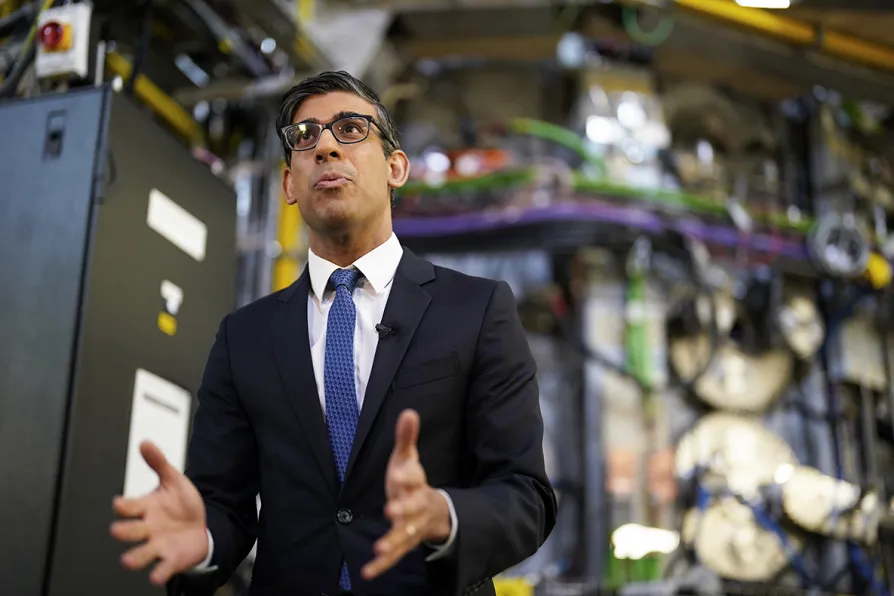Environmental campaigners rubbish government's ‘dangerously lacklustre’ new net zero plans

 Prime Minister Rishi Sunak during a visit to the UK Atomic Energy Authority, Culham Science Centre, Abingdon, Oxfordshire, for a discussion on energy security and net zero
Prime Minister Rishi Sunak during a visit to the UK Atomic Energy Authority, Culham Science Centre, Abingdon, Oxfordshire, for a discussion on energy security and net zero
ENVIRONMENTAL groups and experts rubbished the government's “dangerously lacklustre” new net zero plans today, saying they fall short of tackling the climate crisis.
The latest Westminster strategy was drawn up after the High Court ruled that the government’s existing plans would not meet climate targets.
Measures include cutting the cost of electricity, which can be generated cleanly, at the expense of gas.
Similar stories

But Unite warns that Labour has ‘missed a golden opportunity to bring the national grid under public ownership’

North Sea oil and gas licences may be ruled unlawful after High Court bans new coalmine












